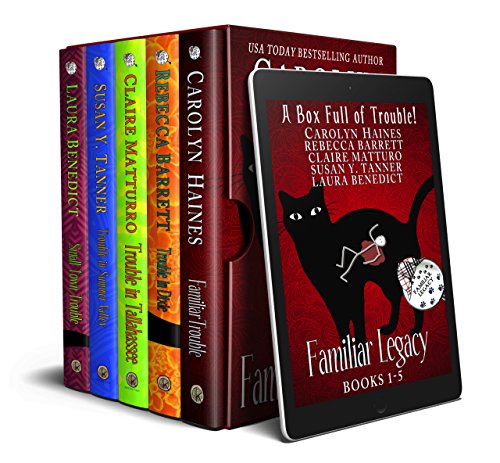cj Sez: The subject today is a set of pros and cons for audiobooks.
A friend of mine was talking about his love of audiobooks.
He listens while he drives, while he works, while he gardens; he listens
everywhere and every chance he gets. He cites the advantage of hands-free “reading.”
He also notes that the market for audiobooks seems to be exploding. That, of
course, makes the medium a valuable source of revenue for authors.
Being the contrarian, I said that listening to audiobooks while
driving was a bit dangerous because they are distracting. You’re either going
to pay more attention to the road or to the book. One or the other will suffer. He,
the multi-tasker claimed to have no problem with that.
Since my opinion about the risks associated with listening
while driving was based on old research, I decided I needed to update my
information. I almost immediately uncovered some answers in another Jane
Friedman blog post.
*Author Kristen Tsetsi, in her August 2018 post on Jane Friedman’s blog,
writes:
Cognitive psychologist Daniel T. Willingham, “Ask the
Cognitive Scientist” columnist for American Educator magazine and
author of The Reading Mind, among
others, notes another
difference: “[Reading] requires decoding and [listening] doesn’t.”
From her personal experience, she related:
“For the seasoned reader of text, audiobooks also help
develop critical listening skills, according to Reading Rockets. I can attest
to this—it definitely takes concentration and a commitment to pay attention.”
My point, exactly. However … back to the pros, also from
Kristen Tsetsi:
“The book lover in me, though, is even more grateful for the
audio option. In just eight months I’ve been able to “read” thirty-eight books
I otherwise wouldn’t have. I’ll still use air quotes around “reading,” but only
for the sake of accuracy. My cheater shame has been edged out by the conviction
that writers write in order to have their words experienced, and that readers
and “readers” alike just want to experience them. Period.
///
“Comparing audio books to cheating,” Willingham writes, “is
like meeting a friend at Disneyland and saying ‘you took a bus here? I drove
myself, you big cheater.’ The point is getting to and enjoying the destination.
The point is not how you traveled.”
The audiobook medium is definitely growing in popularity and
not only because of the hands-free convenience. Readers who want large-print
books are faced with a limited selection, and the exploding audiobook market
can fill that need. That said, I stand by my opinion that there are
times/places where an audiobook may not be the best way to “read” a book.
What’s your favorite way to enjoy a book? Physical book, eBook, audiobook,
or all versions at different times for different reasons?
***
cj Sez: Now that it’s autumn, the stores are going full bore
with sales on Halloween-Thanksgiving-Christmas/Hanukkah/kwanzaa-New Year’s
items. Staying with that theme, I thought I’d share the first of my plans for
the holidaze: Halloween.
I bought a Nordic Ware Skull Cakelet pan and experimented
with pizza calzones one night last week. I didn't get the pizza dough thin
enough on the first few attempts, but the concept was grossly perfect. The idea
is that when you break one apart, the tomato-sauced bloody cheese and pepperoni
guts spill out. I think I'm going to use the skull pan to make small lava cakes
with a red cream cheese filling that comes oozing out as brain matter when you
take a bite. What do you think? Gory enough? Hee Hee
On Oct 27 I’m planning to go to my first costume party in a
hundred or so years. The Mad Catters (the group of authors responsible for that
wonderful Familiar Legacy cat detective series) are giving an
author-reader
meet and greet Halloween costume party at Angela Trigg’s (aka Rita and Prism
Award winning author Angela Quarles) newly re-opened Haunted Book Shop. I have
only half an idea of which author I’d like to dress up as, but I’m pretty sure
my escort will be Sherlock Holmes. Lots of spooky stuff on the schedule, including
a treasure hunt and a decorate-a-wooden-coffin contest. If you’re anywhere near
Mobile, you are cordially invited to come and join the fun.
Enough about my hijinks. You-all guys keep on keeping on,
and I’ll try to do the same.
cj
Stop by Amazon and pick up copies of DEADLY
STAR and CHOOSING
CARTER. Fast, exciting reads and a Christmas gift that keeps on giving. (A
hint in case you have only two more paydays until Christmas.)
Send me an eMail that you’ve left an Amazon a review for me
to read—good, bad, or simply “I read it.”—and I’ll put your name in a raffle to
receive a gift bag of goodies. I’ll be drawing a random name on December 6 (my
sister’s birthday) and will post it on my Facebook page, so be sure to stop by.
Qrtly newsletter sign-up:
cjpetterson@gmail.com
Simon&Schuster
Author Page = https://bit.ly/2uo1M0Z

























